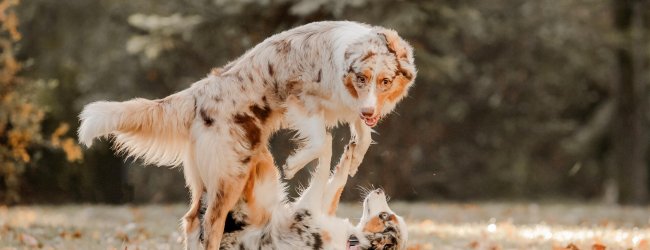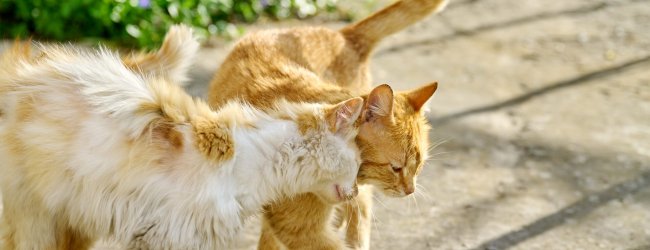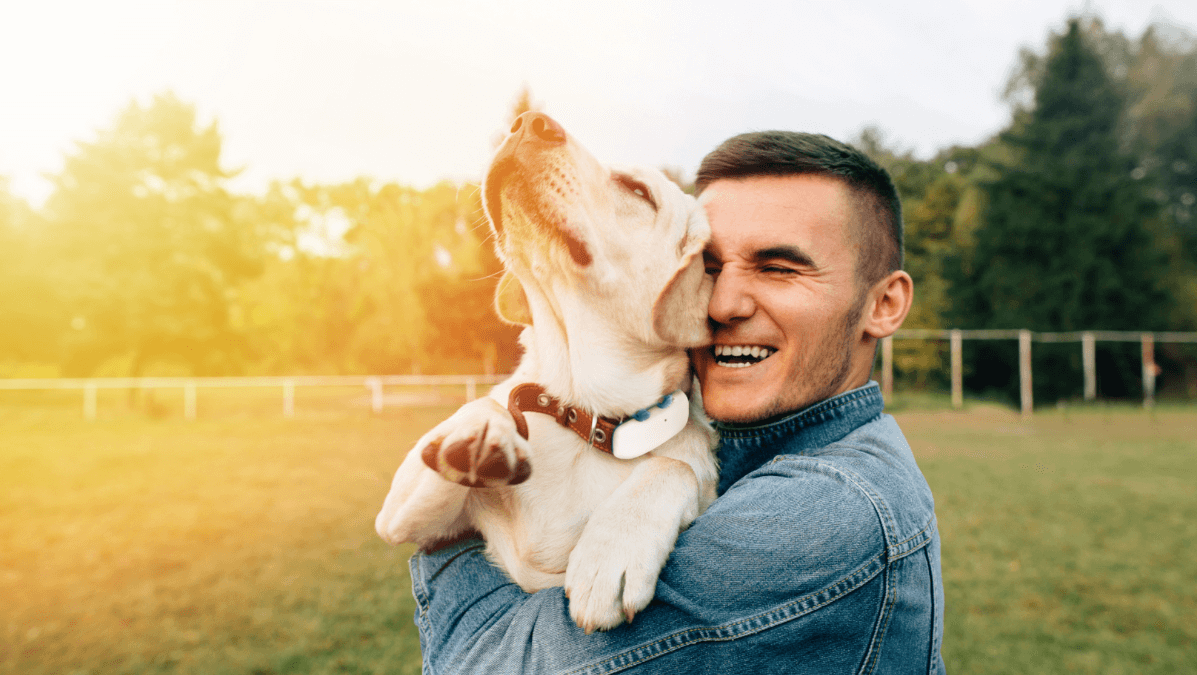Noise Anxiety In Dogs: Why Is My Dog Scared Of Loud Noises?
Is your dog scared of everyday noises and you don't know what to do? Read on to learn all about noise anxiety in dogs and how you can help calm your pup.
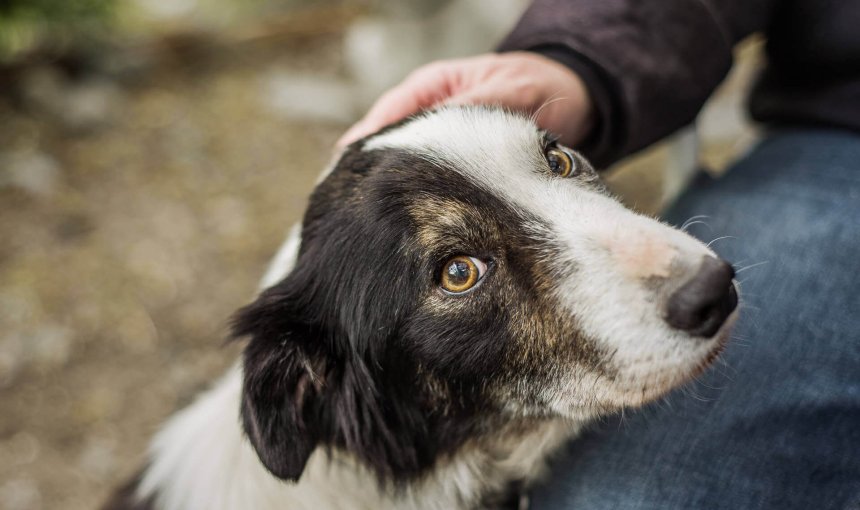
Loud noises can startle any dog, but some dogs experience high anxiety when they hear thunder, fireworks, car alarms, and other sounds. This is known as noise aversion, noise sensitivity or noise anxiety in dogs.
Relatively common, canine noise aversion affects at least one third of all dogs in the US. It’s likely that even more dogs suffer from noise anxiety; experts suspect that the condition it goes largely undiagnosed and untreated1.
A dog’s response to noise can range from mild to severe on the noise aversion spectrum. Dogs with a normal and healthy noise fear response might be startled by a loud noise and then move on with their day. On the other hand, a dog with a serious noise phobia or aversion may tremble and hide for hours after a thunderstorm. In more serious cases, noise anxiety in dogs can lead to dangerous or destructive behavior.
Keep in mind: dogs with a strong noise sensitivity may be more likely to run away and get lost or come into harm’s way. With a GPS dog tracker like Tractive GPS, you’ll be able to find your dog anytime – in real time and over any distance.
Below, learn how to better understand and manage your dog’s noise phobia.
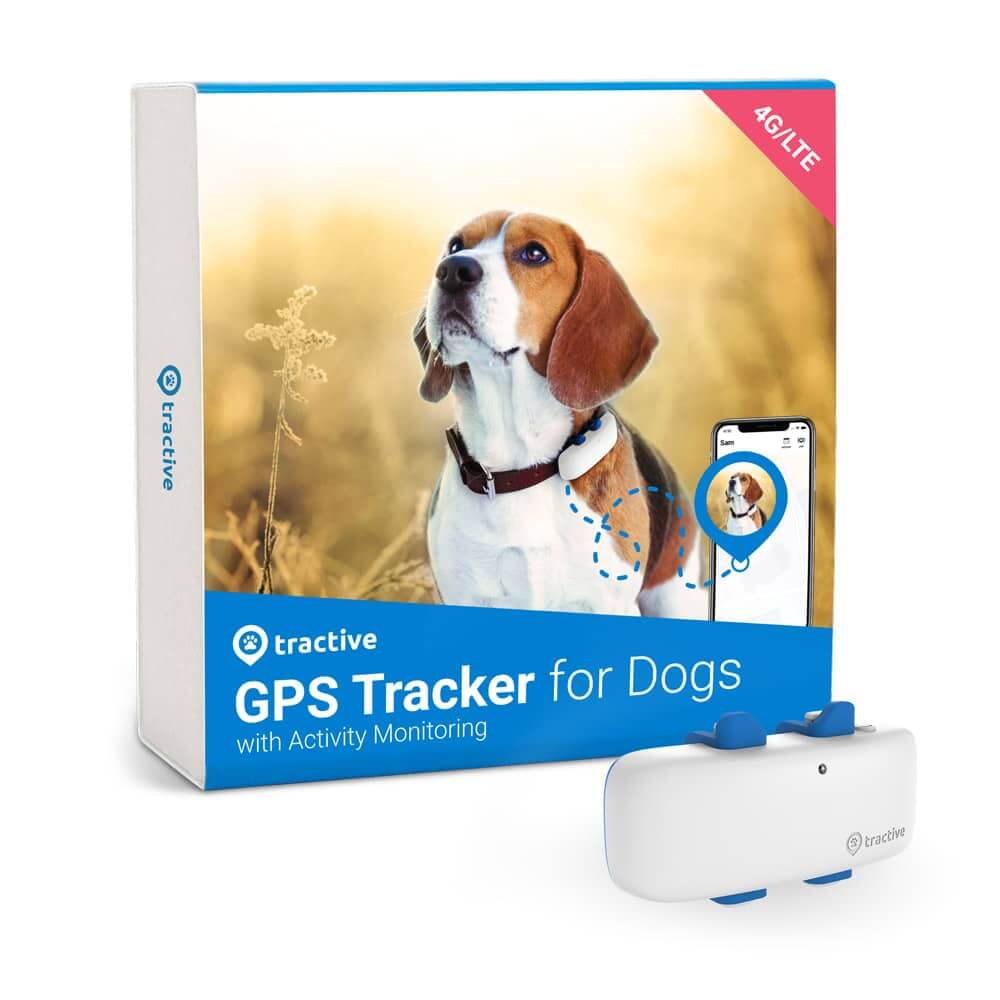
Always know where your dog is
Follow every step in real-time with unlimited range. Get alerts if they wander too far. Keep them happy & healthy with Wellness Monitoring. And let others – like walkers or sitters – keep an eye on your dog too.
Causes & triggers of noise anxiety in dogs
Does your pup tremble in fear when fireworks go off? Do they become hyper alert when you run the vacuum cleaner? They may have a noise phobia, which is defined as an abnormal, very intense reaction to sounds.
Humans know that thunder or the vacuum cleaner won’t hurt us, but your dog doesn’t know this. And of course, you can’t explain that to your pup, so we have to find a solution that works from your dog’s point of view.
The causes of most noise phobias are not fully understood, but research points to a few possibilities. Dogs that were not well socialized as puppies seem more prone to noise anxieties. This means that if a puppy was not exposed to certain sounds, places, or objects in a positive manner by the time they are 12-14 weeks old, they may be overly fearful of these things as adults.
Some noise phobias stem from traumatic events in a dog’s life.
For example, if a dog is left outdoors alone during a thunderstorm, they might associate that booming sound with fear, loneliness, and separation from their humans. The dog may become traumatized and react fearfully to those sounds in the future.
Remember that dogs have more sensitive hearing than humans, so this may cause them to react intensely and develop phobias to loud noises. Dogs can hear sounds at higher frequencies than we do, so you may not be able to hear the screeching garbage truck that puts your noise-phobic dog into a fearful state.
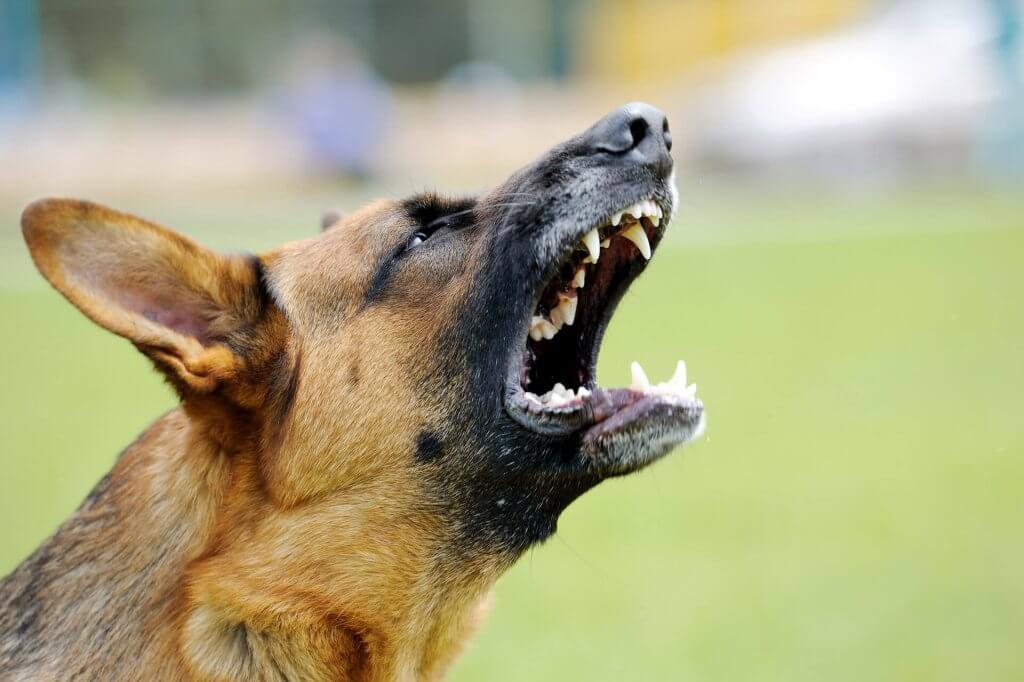
Signs of noise aversion in dogs
You might be wondering: What can I do to prevent a fear of sounds in my dog and what treatments can reduce fear and noise-phobic reactions?
The first step in preventing noise anxiety is to know how your dog reacts when they hear a scary sound. Watch for these behaviors and observe if a loud noise seems to set them off:
- Pacing
- Trembling
- Barking
- Whining
- Panting
- Hyperalertness
- Hiding
- Drooling
- Destructiveness
- Urinating or defecating in the house
- Running away or trying to escape
When your dog exhibits these behaviors, listen for the sounds that may be causing the anxiety. It could be something as simple as the furnace kicking on or a baby crying.
Once you make the association between your dog’s noise anxiety and the sound or sounds that trigger it, you can take steps to manage their fear, such as behavior modification or creating a safe space for your dog.
What noises are dogs scared of?
Loud, sudden noises or high-pitched sounds seem to trigger reactions in dogs that experience noise phobias, including:
Thunderstorms
Because thunderstorms are common in many parts of the world, this is one of the most universal triggers of noise anxiety in dogs. The smell of rain, flashes of lightning, and changes in barometric pressure may also signal the upcoming fearful noise to your dog.
5 Ways to Stop Your Dog From Being Frightened During a Storm
Gun shots
Gun shots definitely strike fear in most humans as well as dogs. A gunshot is extremely loud, which is why people wear ear protection at shooting ranges.
Buses and trash trucks
Beeping, clunking, and screeching are all part of the cacophony of sounds created by trash trucks and buses. The high-pitched sounds that humans can’t hear are probably part of what sets off a fear response in your dog.
Vacuum cleaners
Vacuum cleaners are loud, and they invade your dog’s space, too. The whining motor is likely the most bothersome aspect for your dog. It’s tempting to give up vacuuming as a way to reduce your dog’s anxiety, but the dog hair on your carpet can’t wait.
Skateboard wheels on pavement
Grinding boards on concrete, wheels rolling over bumps, and sudden landings after jumps might startle your pup and create anxiety.
Crying babies
Extensive crying sessions by your baby or the baby next door may trigger a fear response in your dog. Or, it’s possible that your dog may be picking up on your anxiety as you try to calm a fussy or colicky baby.
Construction noises
Construction is a noisy business with booming, grinding, clunking, and beeping coming from all types of heavy equipment. Living next to a construction site can trigger anxiety in your pup, especially if your dog is left alone all day to handle the unpredictable soundscape by themselves.
Car alarms and sirens
If you live in a city where car alarms are constantly going off, this can be a problem for your anxious pup. Often these alarms, along with sirens from police or fire responders, go off at all hours of the day or night and interrupt sleep.
Jet airplanes
The whining, high-pitched noise of a jet engine can send your dog into a frenzy.
Air conditioners or furnaces
Depending on the age and type of your furnace or air conditioner, they can be very loud. If your dog is home alone often, they may have to withstand repeated instances of the heat or A/C starting up without you there to calm them.
Calming noises for dogs
Just like some sounds can produce anxiety in dogs, other sounds can help to calm them.
Classical music has been shown to ease anxiety among dogs in a shelter environment. Playing sounds of rushing water or white noise can help to mask the scary sound. Try out a sleep app meant for humans, or use a sound machine that is designed to muffle loud noises in babies’ rooms.
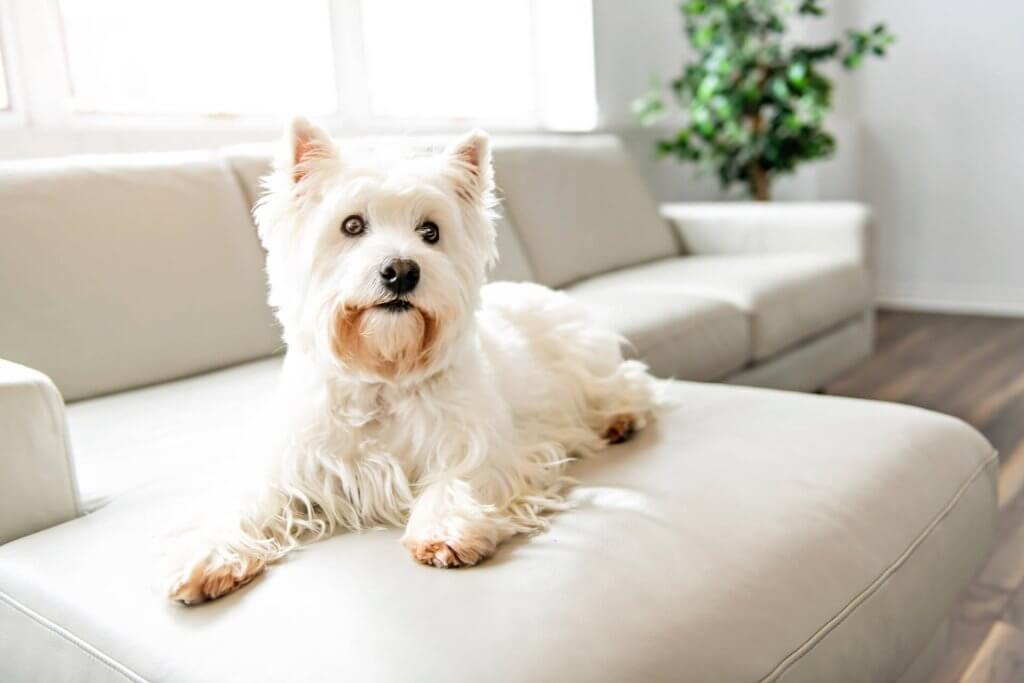
How to treat noise anxiety in dogs
You can help your dog learn to handle loud noises, overcome their phobias, and create a positive association with a sound that frightens them.
Create a safe place
Notice where your dog goes, or tries to go, when they are afraid. Perhaps they attempt to get under your bed – if so, leave the bedroom door open for them to have access to that safe space. If your dog is outside most of the time, install a doggie door so they can get into the house and away from the noise if needed.
You can create a hidey-hole for your pooch to escape to when they are stressed. Make this spot small, dark, and in a quiet area of your home. Perhaps turn on a radio or white nose machine nearby to help mask the scary sounds.
To get your dog comfortable in the hidey-hole, feed them treats in that spot. They will begin to associate that location with a positive activity.
Most importantly, the hidey hole (or other location) must be a place that your dog can enter and leave freely. Locking them into a specific location, such as their crate, will only increase their anxiety.
If your dog paces and moves about when experiencing noise anxiety, providing a safe space may not be the best approach.
Distract your dog
When your dog first shows signs of getting anxious, engage with them in a fun activity to distract them from the noise. Choose something that your dog really loves, like playing tug of war, fetch, or working on commands. Offer lots of verbal praise and some treats.
If the thunder or other loud noise increases, you may have to work harder to keep your pup’s attention. Each time noise anxiety arises, see if you can engage your dog for longer periods of time. This will reduce the duration of their anxiety. Once your dog can’t focus any longer, abandon the activity and try again next time.
How To Teach Your Dog The Most Important Dog Commands
Behavior modification
Behavior modification conditions your dog to respond in a calm manner to loud noises and other triggers that cause anxiety or noise phobias.
Behavioral modification doesn’t happen overnight. It is a gradual process that can take weeks or months, but it is often successful at minimizing anxiety and phobias in dogs.
The techniques used include counter-conditioning and desensitization. It works like this:
- Find a way to recreate the loud noise that causes fear. (You may be able to find a recording or sound effect online.)
- Play the sound at a low volume while you engage your dog with a fun activity, game, or offer a treat.
- Gradually increase the volume of the sound while continuing to engage your pup with the activity.
- After daily practice, your pooch may come to associate the previously-feared sound with something pleasant.
Some situations, like thunderstorms, may be hard to recreate because the lightning, winds, and rain pelting the house is tough to replicate. You may need help from a professional to conquer your dog’s fears in these instances.
Modify their environment
If you know a thunderstorm is approaching or fireworks are planned for a holiday, be prepared. Stay home with your dog if you can. Close all the windows and doors, and draw the curtains to muffle the loud noises from outdoors. Turn on the TV, a white noise machine, fan, or some music as background noise to block out the sound.
Consider using a calming spray or pheromone plug-in to help reduce anxiety.
5 Tips: How To Leave Your Dog Home Alone Without Feeling Guilty
Who should I contact if my dog is fearful or phobic of sounds?
If your dog experiences extreme noise phobia and anxiety, you may need to seek assistance. Contact your veterinarian and schedule a visit to rule out any medical conditions that may contribute to your pup’s phobias.
Your vet can diagnose the condition, prescribe medication, and design a comprehensive treatment plan for your pooch. Your veterinarian can also refer you to a certified animal behaviorist.
Help your dog overcome their noise phobias
With consistent care from you and veterinary professionals, your pup can become less anxious about loud noises. When your dog’s phobias are decreased, you and your pup can enjoy more quality and stress-free time together.
